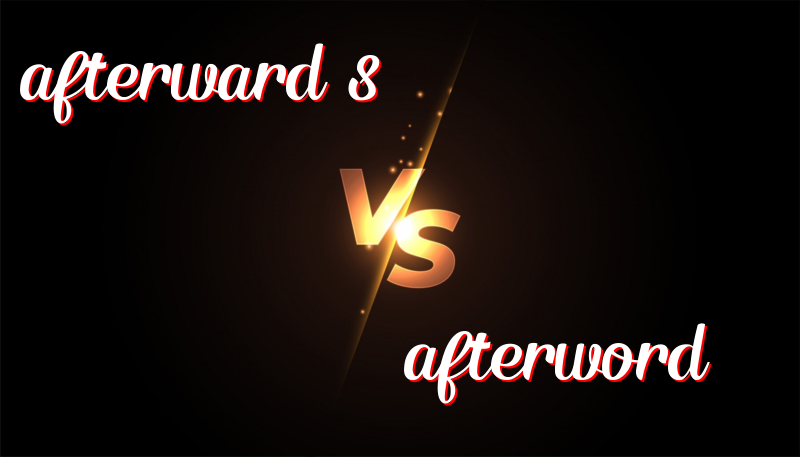Difference Between Afterward and Afterword: Meaning, Usage, and Examples
Understanding the Words: “Afterward(s)” vs. “Afterword”
History of the Words
The words “afterward(s)” and “afterword” sound similar but have different meanings and uses. “Afterward(s)” comes from Old English and is often used in both American and British English. “Afterword” is a newer word made from “after” and “word,” and it is used in books.
How to Use Them
Afterward(s)
“Afterward(s)” means later or after something happens. You can use it to talk about what comes next in time. In American English, people say “afterward,” while in British English, it is often “afterwards.” Both mean the same thing.
Afterword
“Afterword” is used in books. It is a short section at the end of a book, where the author or someone else writes extra thoughts or information. It is like a closing note for the readers.
Trick to Remember the Difference
- Remember: “Afterward(s)” is about time; it means “later.”
- Remember: “Afterword” has “word” in it, like a part in a book – a final “word” from the author.
Example Sentences Using “Afterward(s)”
- We went to the park, and afterward, we had ice cream.
- She finished her homework and went to play afterward.
- The movie ended, and we talked about it afterward.
- He ate breakfast and afterward brushed his teeth.
- They attended the meeting and had a discussion afterward.
Example Sentences Using “Afterword”
- The book’s afterword explains the author’s inspiration.
- In the afterword, the writer thanks everyone who helped with the book.
- I like reading the afterword to know more about the story.
- The afterword gave extra details about the characters’ future.
- An afterword can give the reader closure at the end of a book.
Summary
To sum up, “afterward(s)” is all about what happens next in time, and is used in everyday conversations. “Afterword” is a special closing part in books, offering final thoughts or extra information. Remember, “afterward(s)” comes in everyday life, and “afterword” is the author’s last “word” in a book.

Leave a Reply
You must be logged in to post a comment.